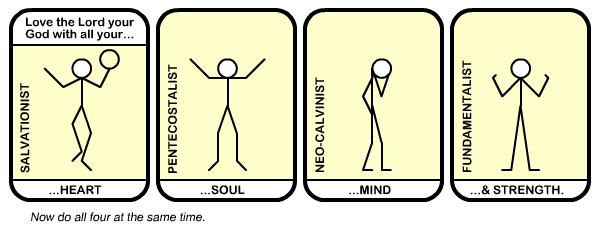(and no I’m not talking about Sunday Papers or Richard – just the church in general and me (Mark) in particular)
Is it because: We comfort ourselves with thoughts that we don’t “sin” much – so therefore we forget what doing wrong feels like (not because we aren’t doing wrong, but because we kid ourselves that we aren’t). So now, we have forgotten what it feels like to do wrong and we can’t imagine what it feels like for people who know that they are doing wrong – in fact, we forget that there are My Blueberry Nights dvdrip
The Prince of Tides A Merchants of Venus (aka Dirty Little Business) movies A Nightmare on Elm Street move Patton movies people who believe that they are doing wrong!
So we have forgotten how to address people who are aware of their wrongdoing. We can’t imagine what to say to people who are aware of their wrongdoing because we’ve forgotten what it feels like to be a wrongdoer.
There are people out there who know that they do wrong and know that they want out of it, but (very) unfortunately we’ve forgotten what to say to them because we’ve forgotten what it feels like to do wrong (because we kid ourselves that we don’t do much wrong).
I experienced this with a friend just the other day – he knew he was doing wrong, but I just didn’t relate to it. I let him down.
I need to put myself on a programme that reminds me how wrong I am so much of the time and at the same time reminds me of the basics of what Jesus has done for people like me – because it seems that I’ve forgotten. After all, if I’ve forgotten how wrong I am then I’m forgetting how much Jesus wants to, and can, help us.

